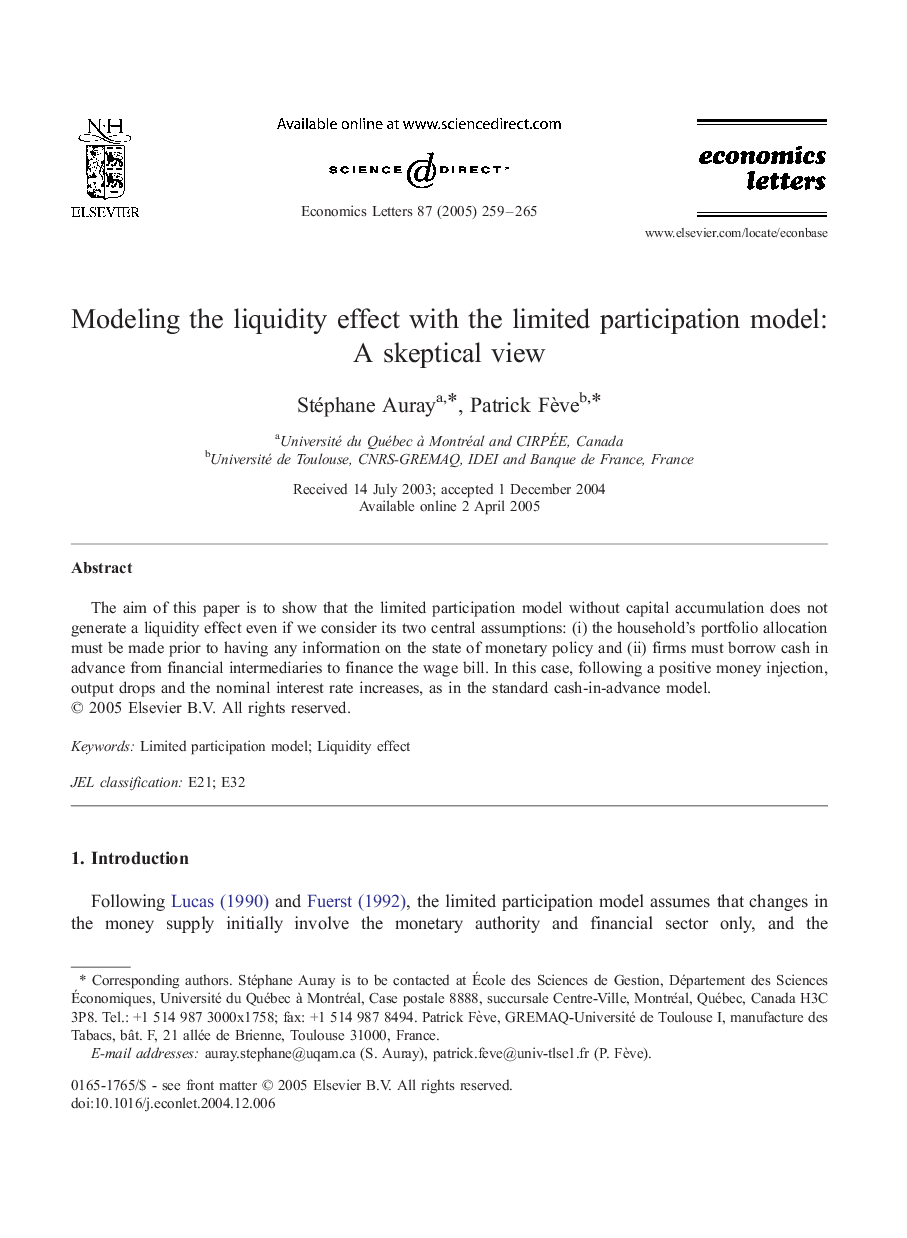| Article ID | Journal | Published Year | Pages | File Type |
|---|---|---|---|---|
| 9549289 | Economics Letters | 2005 | 7 Pages |
Abstract
The aim of this paper is to show that the limited participation model without capital accumulation does not generate a liquidity effect even if we consider its two central assumptions: (i) the household's portfolio allocation must be made prior to having any information on the state of monetary policy and (ii) firms must borrow cash in advance from financial intermediaries to finance the wage bill. In this case, following a positive money injection, output drops and the nominal interest rate increases, as in the standard cash-in-advance model.
Keywords
Related Topics
Social Sciences and Humanities
Economics, Econometrics and Finance
Economics and Econometrics
Authors
Stéphane Auray, Patrick Fève,
